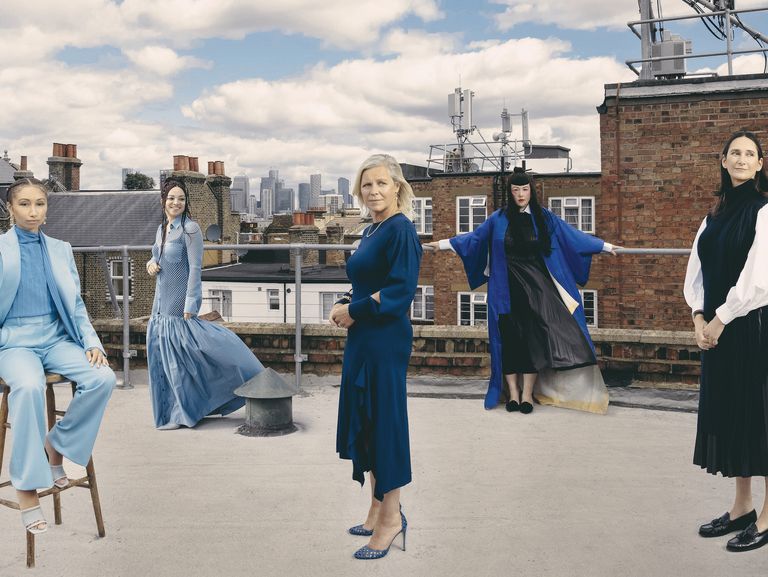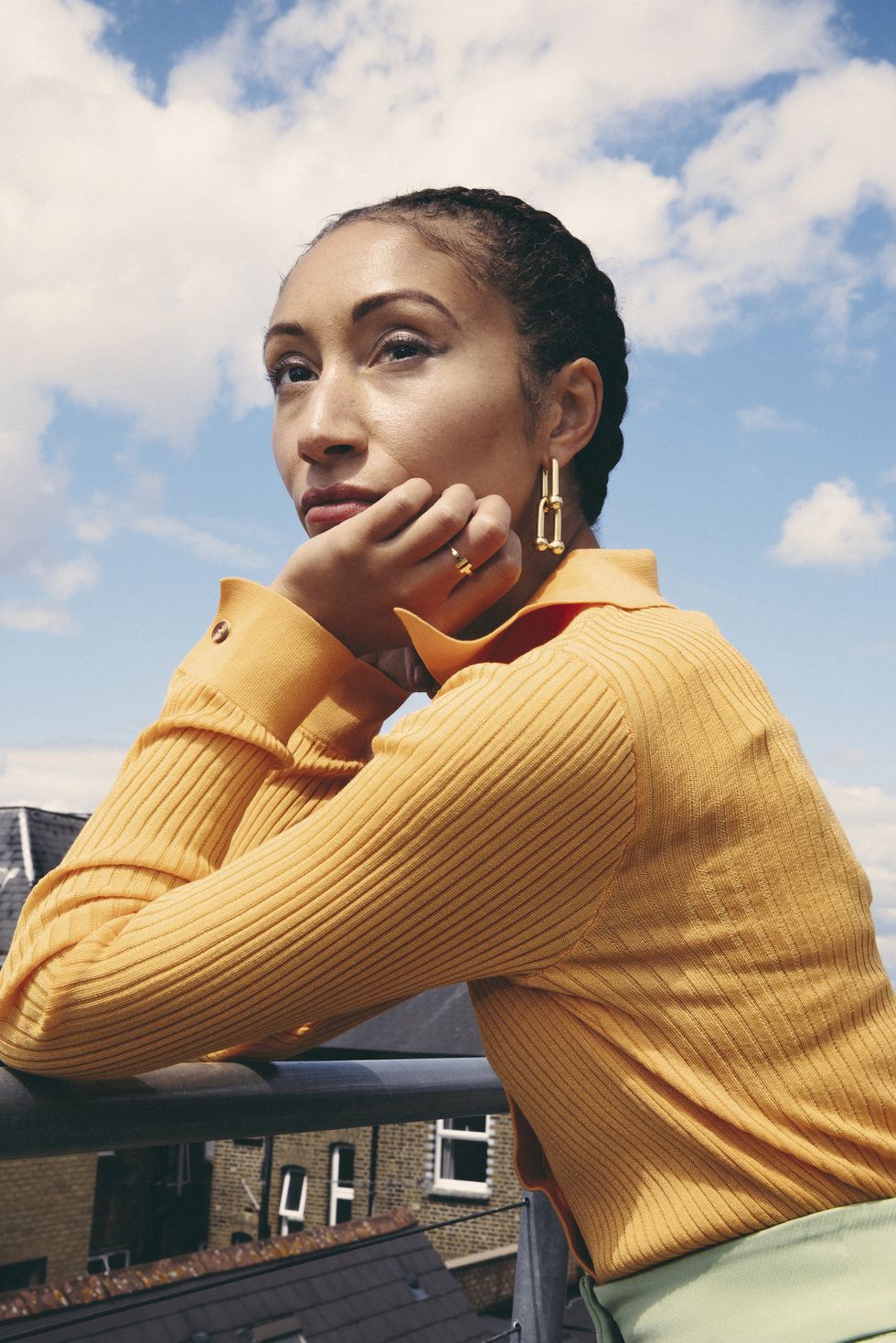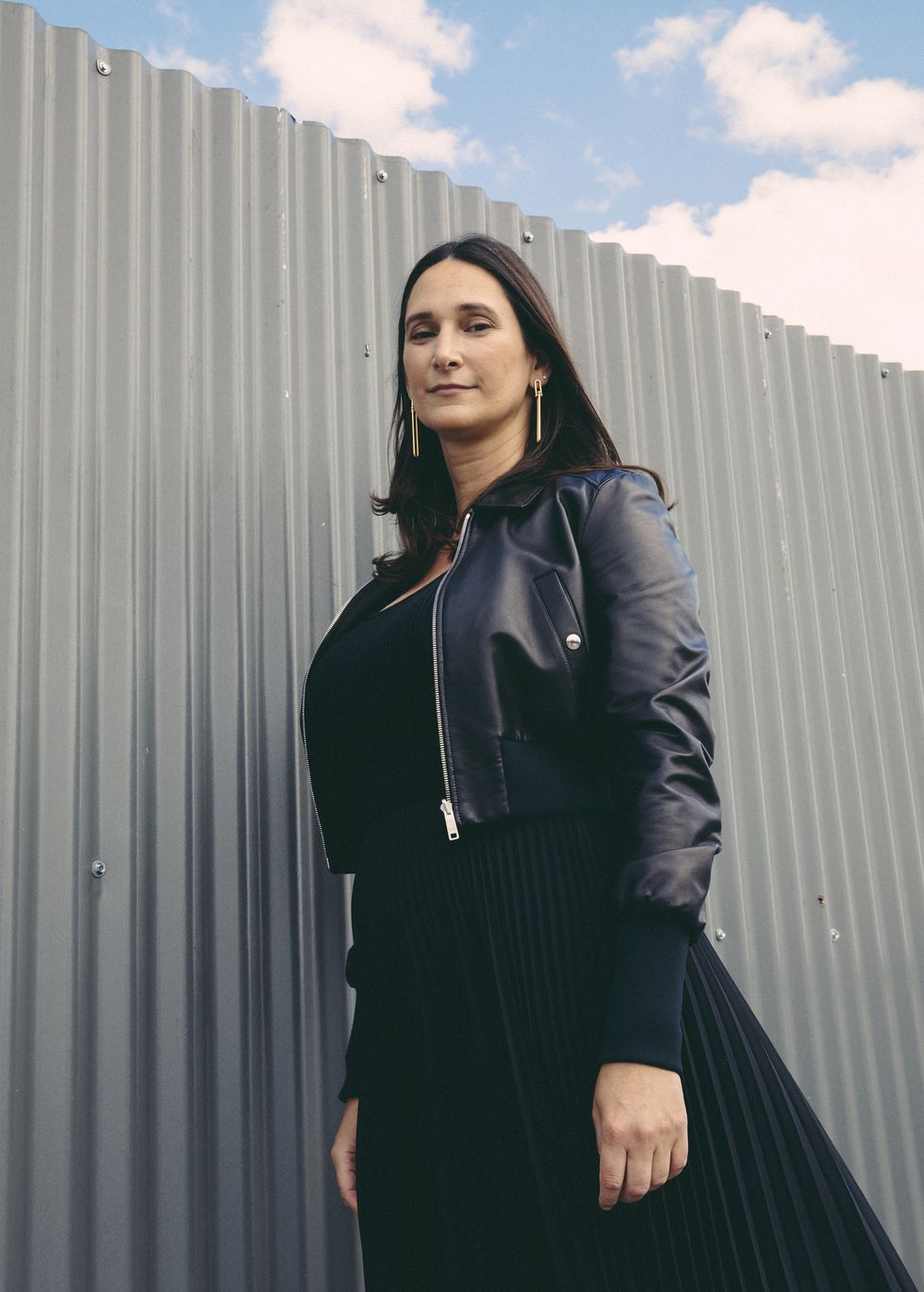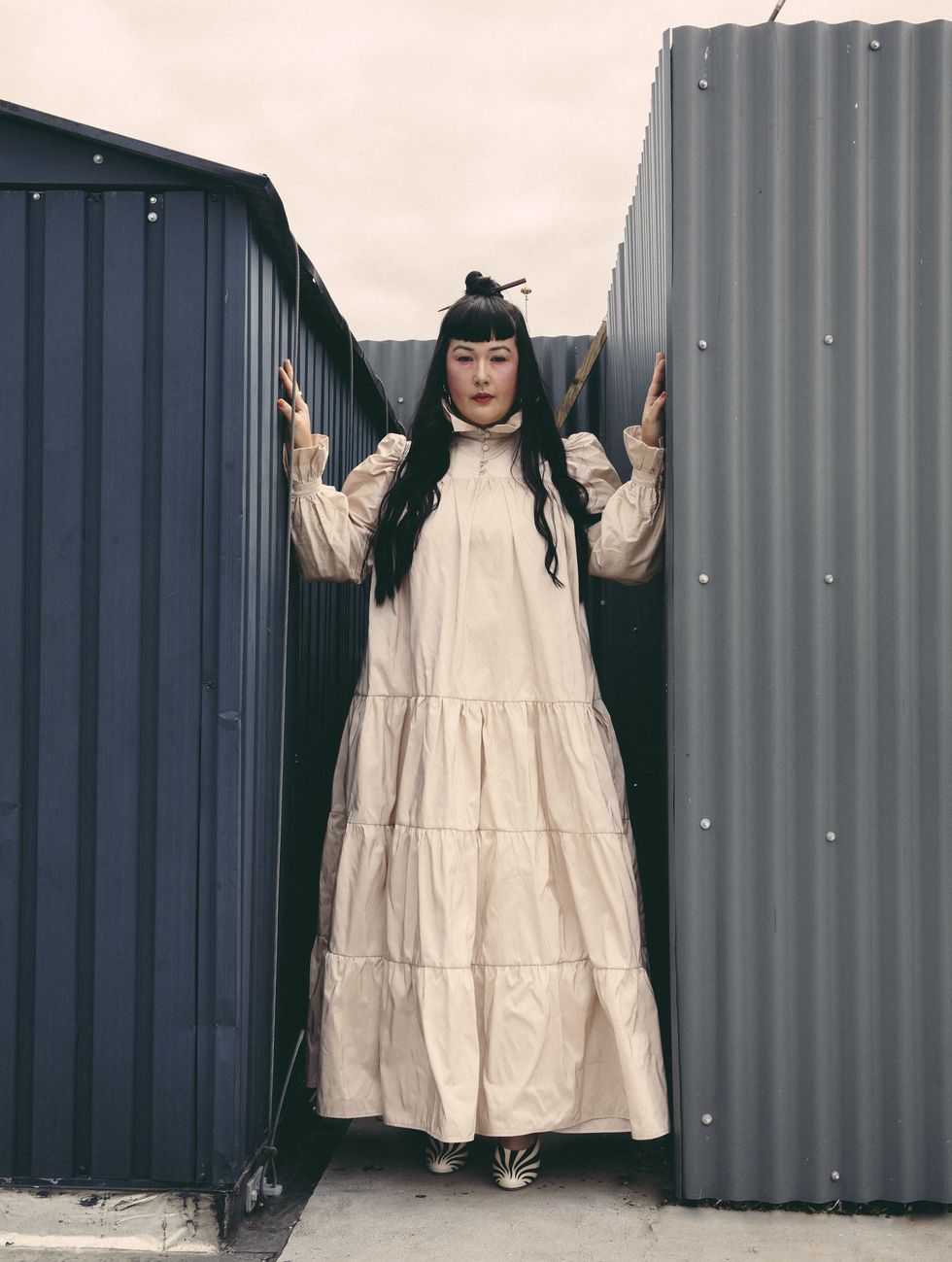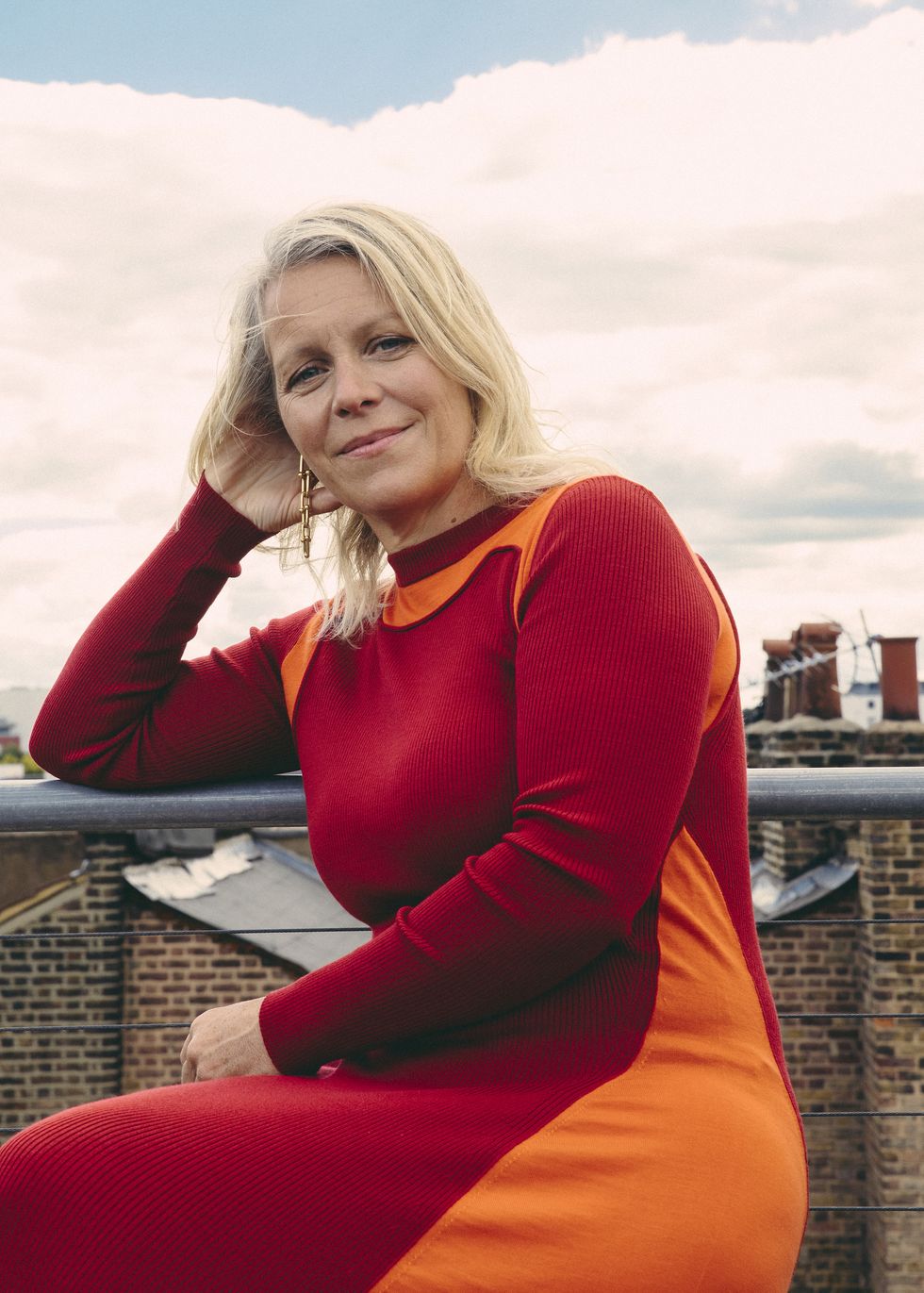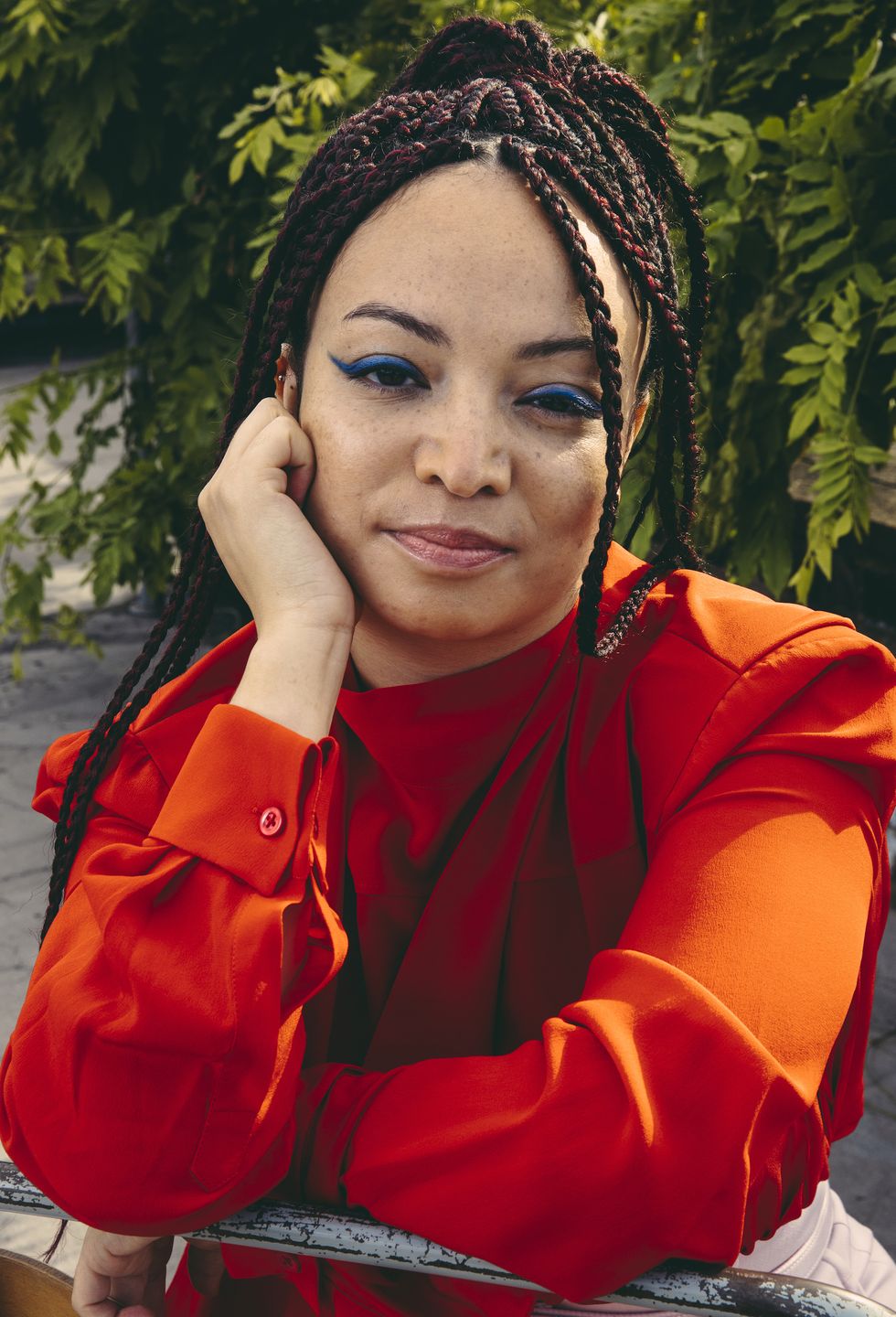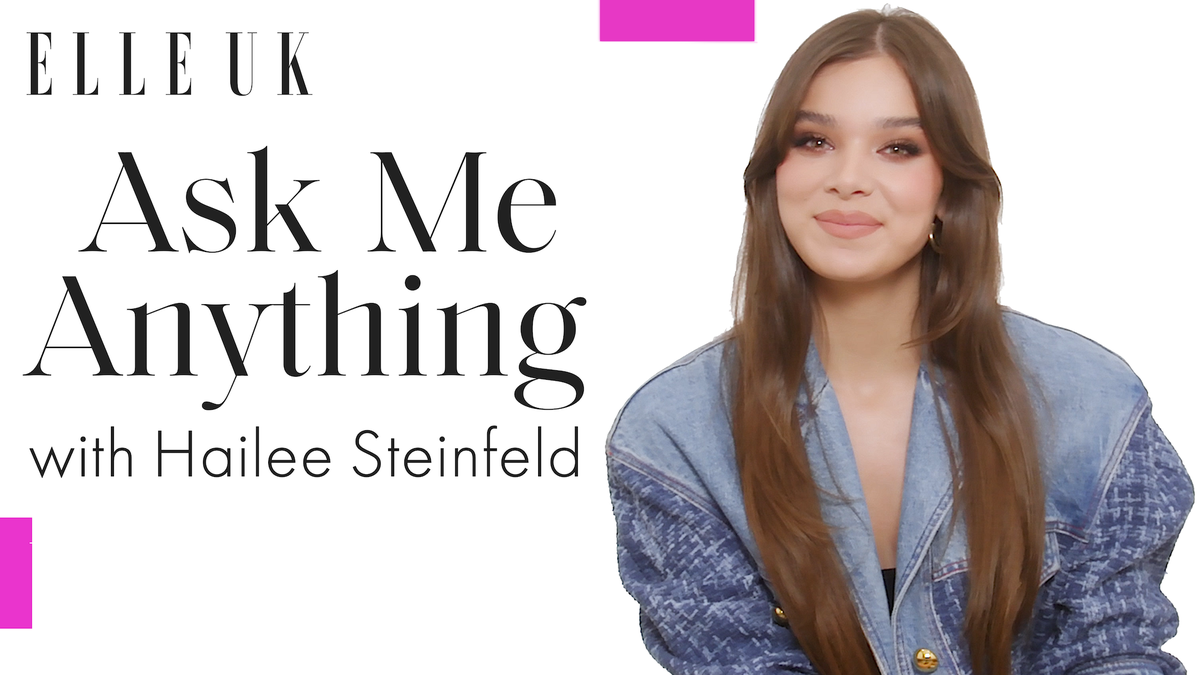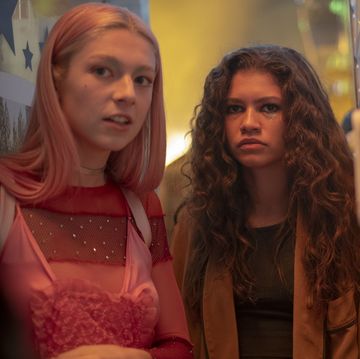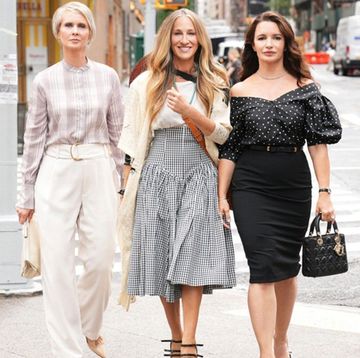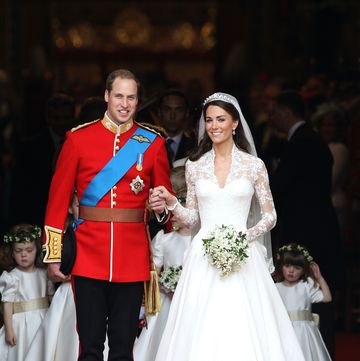Emma Paterson, literary agent
For authors, winning the Booker Prize can transform their life. For an agent, it’s a similar story, as Emma Paterson, 35, can attest. Her client, Bernardine Evaristo, won the award last year (she was the first Black woman to win in its 50-year history, sharing the prize with Margaret Atwood).
‘I usually enjoy the anticipation more than the reality, but that night didn’t feel anticlimactic,’ Paterson says of the evening. A literary agent at Aitken Alexander Associates, Paterson now spends her time on the opportunities flooding in for Evaristo, who also became the first woman of colour to top the fiction paperback charts in June: ‘The agent managing all of it is on a scale that only happens to authors who win that prize. The pace changes,’ she says of her extraordinary year.
Another outcome for Paterson has been the change to her own standing within the industry: ‘It makes you more visible, so other really good writers are coming to me.’ She was also invited to sit on the Booker Prize advisory committee, alongside publisher Sharmaine Lovegrove and Waterstones owner James Daunt.
But Paterson doesn’t just wait for work to come to her. She’s leading the way for a generation of agents who don’t always find the next big thing in established literary publications. Rather, she might slide into your DMs; she finds a lot of authors through Twitter and Instagram: ‘The algorithm serves me well. I’ve attached myself to certain writing communities on Twitter, which means that, if I follow one person, the algorithm throws up others writing – or in academia – in the same space.’
It’s how she came across Kristen Roupenian – whose 2017 New Yorker article 'Cat Person' went viral. ‘It was a Sunday, two weeks before Christmas, but I emailed her US agent right away to see if she was represented in the UK… I have to seize the opportunity, no matter how exhausted I might be.’
It’s also how she discovered Emmy Award-nominated data journalist Mona Chalabi, whose fans include Barack Obama and Miley Cyrus. Paterson’s client list is one of the most diverse in the industry, which she’s fought for during her decade as an agent: ‘That opening up of what books can be and who writes them feels more expansive now,’ she says.
Next year, Paterson is excited about Kate Lebo’s The Book of Difficult Fruit and The Transgender Issue by Shon Faye – ‘It does for trans people what Reni Eddo-Lodge’s book did for the conversation around race.’ It looks set to be another year of literary success – for Paterson’s writers, and the woman herself.
Bettina Korek, CEO of Serpentine Galleries
Bettina Korek never imagined she’d leave her native LA. But when she got the call offering her the position of CEO at London’s Serpentine last December, a transatlantic move was suddenly a no-brainer. The Hyde Park gallery is famous for its forward-looking programming, but its history of civic engagement and the Pavilion programme – in which temporary structures are commissioned to showcase emerging talent, which began in 2000 with Zaha Hadid’s minimalist tent-like structure – reflect Korek’s art world ambitions.
‘I want to bring together disciplines and explore how the Serpentine can be a bridge for artists to have more agency, and a voice in society for the issues of our times,’ she says.
What’s more, the seriousness of the art world has to be matched by a sense of fun for the 42-year-old. ‘Contemporary art can be intimidating. Artists explore deeply important issues and it’s about how to be that bridge. That’s been an important thread throughout my career,’ she says.
So far, Korek’s career has been fun and highly collaborative. After studying history of art at Princeton, she realised just how important context is when it comes to how people enjoy art.
‘My college experience affected my professional approach – the programme was about the conversation of art history, but also how much context people need coming into contemporary art.’ Working with artistic director Hans Ulrich Obrist, Korek is determined to ‘expand a place of art into everyday art’ by looking at different entry points.
It’s what defined her role as Frieze LA’s executive director, which saw Korek work directly with artists such as Barbara Kruger. As part of her last Frieze art fair, Korek wanted a new way to engage in art patronage and connect with local artists, so she organised a street fair on the Paramount Picture Studios backlot – a movie set, laid out like a city.
‘Joining an organisation or buying an artist’s book are vital ways of supporting artists,’ she says. ‘The fair brought snapshots of many art worlds to one place.’
Korek’s first year at the Serpentine was meant to be a momentous one for reasons other than a worldwide pandemic. But programming for its 50th anniversary has been extended and, with Korek at the helm, next year may now be even bigger.
‘We’re taking this opportunity to think about a 50+1 scenario.’ It’s likely to involve a greater focus on ecology and ‘slow programming’, which Korek hopes will extend beyond the gallery’s physical space. ‘I’m excited about how we can build on the theme of gathering voices and questions around a decentralised institution.’
When the gallery is open*, Korek enjoys the walk to Hyde Park and appreciates the Serpentine’s unique position. ‘Civic engagement already plays an important role in the Serpentine programmes. It’s so natural in terms of its place in the park, where many visitors come from, but it’s always made an effort to reach out into the city. It will be more of a focus for us as we look to the future.’
Sulinna Ong, head of music at Spotify for UK and Ireland
Sulinna Ong decides what 299 million people in the world listen to. ‘People come to Spotify to discover music,’ she says, of the world’s most-popular streaming service. ‘I’m always driven by the desire to connect people with their new favourite song and play a meaningful part in an artist’s career.’ And to help her choose from the 40,000 new tracks submitted to Spotify each day, Ong, 42, personally listens to thousands of tracks each week in the office, on her commute and even in the bath. The only time Ong isn’t catching up on new music is the hour she resets her mind playing video games before she goes to bed: at the moment it’s Divinity Original Sin 2.
Music became Ong’s escape and rebellion after a childhood spent moving round different countries, until her parents finally settled in Australia; now, everything related to music and artists falls under her remit at Spotify, including curating the perfect playlist, marketing an artist’s new album and programming the Spotify app with the most timely content.
The ‘head of music’ title didn’t even exist until Ong came along. Three months after joining Spotify from rival Deezer in 2019, the new role was created specifically for her, something she attributes partly to her deep understanding of tech. ‘Music and technology have always been the two constant loves of my life,’ she says. ‘Early on in my career I was told by my bosses I had to pick one area to focus on, but I never bought into that. I knew I could do both.’
Ong started out working at Sony as a product marketing assistant, after studying music at the University of Western Sydney. In 2002, she decided London was the only place to be for music, so she quit her job and moved there alone, working various temp jobs before landing a role in international marketing at Sony Music. She went on to manage platinum-selling artists – which involved some wildly hedonistic tours – and later worked on record deals at Live Nation, for the likes of Madonna and Jay-Z.
At Spotify, Ong has had a direct hand in helping emerging artists break into the industry with the year-long Radar programme, which launched in July. ‘We cherry-pick artists we feel have the potential to break into a mainstream audience. Filipino-born Beabadoobee is our latest exciting Radar artist. She’s the face of what I call “new indie”.’ Supporting new artists is not a new concept for Spotify, but Ong wanted a formal programme the team could get behind.
The influence of the streaming platform is hard to underestimate. When rising star Dermot Kennedy’s track got featured in a Spotify playlist in 2016, he was still busking in Dublin. ‘He didn’t have a manager, he wasn’t signed to a label, but he was able to build up a small touring fan base through people finding him on our Discover Weekly playlist,’ Ong says. Spotify met him, continued to share his songs and he’s now signed to the same management team as Dua Lipa and Lana Del Rey.
Authentic diversity in all forms is the backbone of Ong’s successful leadership. ‘The world doesn’t live and die in London, there is an enormous amount of talent regionally, from Nottingham to Edinburgh.’ The playlists are representative because her team is. ‘Innovation is dependent on being diverse,’ says Ong. ‘We are different ethnicities, genders, sexualities, from different backgrounds and parts of the country. We are different, so our daily approach is.’
But reaching this point hasn’t been easy. As a woman of colour, Ong has faced gender and racial discrimination throughout her career: ‘From sexist and racist remarks casually dropped in meetings and everyone laughing, to being paid less than my white male colleagues’. And she hasn’t had a leg up. ‘As a child of Chinese and Persian parents who fled the Iranian revolution, I didn’t come from money. I didn’t go to the “right” school. I didn’t get an MBA,’ she says. Ong’s parents weren’t in the creative industry so there were no family contacts. They wanted her to be a doctor or lawyer, but she convinced them to let her study music. ‘I proved my parents wrong. I can get paid to listen to music.’
Charlotte Moore, director of content at the BBC
If you ever find choosing what to watch on TV a challenge, spare a thought for Charlotte Moore, whose job it is to decide what shows get developed, commissioned and broadcast across BBC channels and iPlayer, as the corporation’s first ever director of content, a role she’s held since 2016.
She’s responsible for polishing the jewels in the BBC crown – the mesmerising grandeur of a David Attenborough documentary, the Saturday night sequinned shimmy of Strictly – but it’s clear that she is just as excited by the smaller projects, the longer shots and the newer ideas as the latest ratings-buster.
‘We’re trying to find stories that haven’t been told before; to really push boundaries and allow us to explore subject matters that really deserve a place,’ she says. ‘The best thing about my job is the huge number of creative people that I work with – a lot of the brilliant young people I work with come up with some of the wildest, most exciting ideas. Saying “yes” to them is one of the best moments in the world.’
For 2020, she was able to say ‘yes’ to Michaela Coel and Sally Rooney, and bring us I May Destroy You and the Normal People adaptation. Despite her impressive background in documentary-making, Moore sees her role as a facilitator for people with creative vision, rather than as another opinion: ‘Anyone who’s passionate to tell their story, it’s about empowering them to have the confidence to do that.
‘When Michaela talked about the series she wanted to make, you heard the passion, but also someone who’s clear about what they want to say,’ she remembers. ‘There was no treatment, there was nothing written down, we just said, “OK, it’s brilliant, it’s a commission.” You have that gut instinct right in the moment. She was like, “What channel, what format?” I said, “It doesn’t matter, just write it.”’
It’s a strategy that has led to notable successes – Normal People became BBC Three’s most-viewed show ever, with 6.8m people watching the first episode. Does she always know when she has a hit on her hands?
‘I think you get a hunch. Part of my job is to interpret what’s going to work for a modern British audience, so you have to have your finger on the pulse. But you never truly know. Did I think Normal People was good? I thought it was absolutely brilliant. Did I guess it would be as big a hit? Probably not. Then again even I binge-watched it all when I was sent the episodes in January!’
Up next, Moore’s already commissioning into 2022 and beyond; she’s excited about Steve McQueen’s new series, Small Axe, starring ELLE cover star Letitia Wright, Lily James in an adaptation of Nancy Mitford’s The Pursuit of Love and Jenna Colman in The Serpent, the story of a serial killer in 1970s Southeast Asia.
Beyond that, she wants to keep letting people with a creative vision get their projects on screen: ‘This country has an extraordinary culture of storytelling and I hope I can give new – and, indeed, the very best established – voices the freedom to tell their stories, reach audiences and make that impact, not just here but globally.’
Lynette Linton, artistic director at The Bush theatre
Lynette Linton is quick to pinpoint three massive highs in her career. One: directing the West End transfer of Lynn Nottage’s play Sweat, which critics called ‘breathtaking’. Next, co-directing Richard II at The Globe – the first Shakespeare play to be staged entirely by women of colour – and third, her appointment as The Bush’s artistic director aged just 28.
But she’s not fixated on how much she’s achieved by the age of 30. ‘Yes, I’m a young woman of colour in this industry but that makes me exciting,’ she says. ‘If we think of age as a marker of experience and status, we’re never going to get anywhere.’
When making decisions at The Bush, where she put on groundbreaking debuts by UK and Irish writers for her first season, Linton keeps ‘15-year-old Lynette’ in her mind.
‘I’m from a working-class family,’ she says, recalling a school trip to Macbeth when her classmates were met with sighs from theatregoers. ‘We didn’t go to the theatre. My mum still asks if she should dress up because she’s nervous about coming – her daughter runs the theatre!’
The feeling of not belonging in a theatre is something Linton is trying to quash, one production at a time. ‘A lot of people think the theatre isn’t for them. They think you need an English degree to understand what’s being said on stage and that’s absolutely not true,’ she says.
Growing up in Leytonstone, east London, Linton – whose mother is Northern Irish, her father Guyanese – loved acting, but believed EastEnders was more likely than a theatre career. After studying English at the University of Sussex, she auditioned for the National Youth Theatre, where she met playwright and director Rikki Beadle-Blair. He invited her to a writing workshop. ‘I remember thinking, “Here’s a Black man. I’ve never seen that in theatre. Maybe I can do it, too.”’
Representation and storytelling are at the heart of Linton’s decisions, and now they go beyond theatre – she just made a ‘terrifying but exciting’ TV debut with an episode of Unsaid Stories, ITV’s Black Lives Matter series. The short chronicles a Black couple stopped by police on their way to dinner, which is a scenario that is both ‘timely and timeless’, she says.
‘We talk about the “incident”; I wanted to know about the moments before and after that creates anxiety, emotion and trauma. I also wanted to show Black love and joy. The characters had beautiful chemistry – what would that night have been if they hadn’t been stopped?’
Linton’s first love is still theatre, and her main aim is to change it from the inside out, overhauling traditions of who gets to experience performances on stage. ‘I can’t say that everyone from a working-class background or every Black, Asian or ethnically diverse person feels comfortable in these spaces. We have so much to do in terms of representation. Hopefully, whenever I finish at The Bush, we can see that there’s been real change across our industry.’
This article appears in the November 2020 edition of ELLE UK.
*This article was written before new social distancing restrictions came into force in October 2020. Some of the text has been changed in keeping with new guidelines.
Like this article? Sign up to our newsletter to get more articles like this delivered straight to your inbox.
In need of more inspiration, thoughtful journalism and at-home beauty tips? Subscribe to ELLE's print magazine now and pay just £6 for 6 issues. SUBSCRIBE HERE



